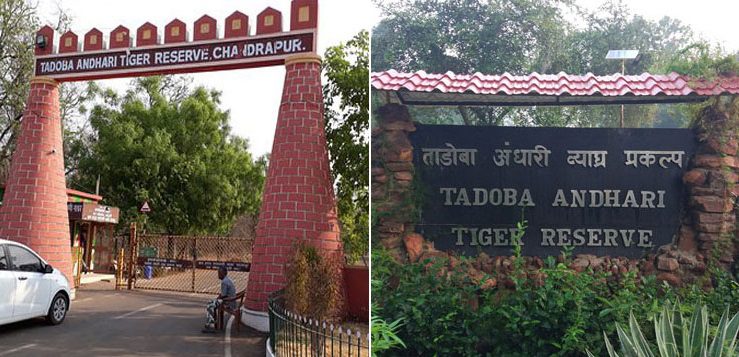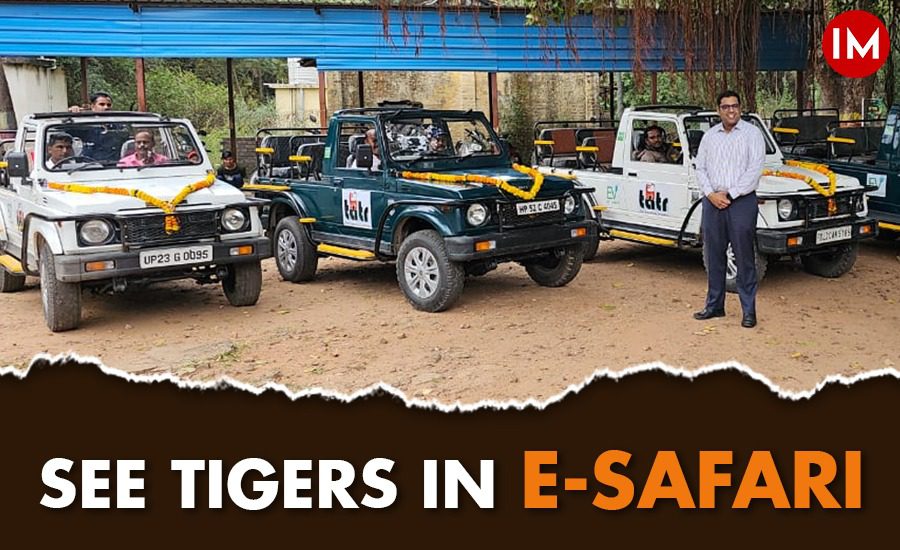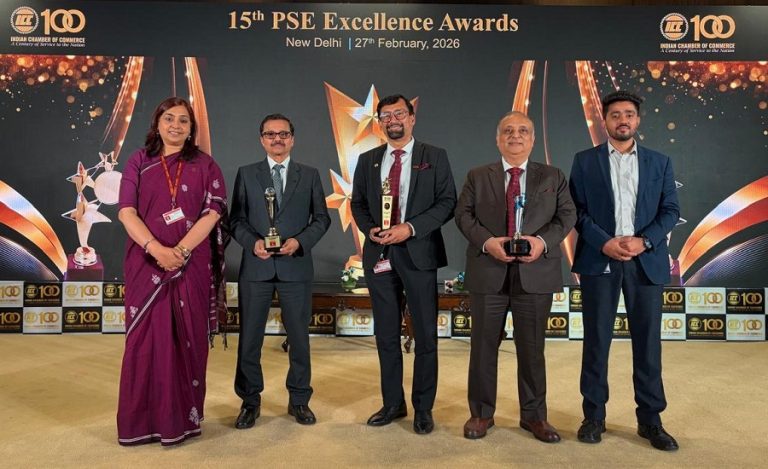Tadoba Andheri Tiger Reserve (TATR) in Maharashtra is converting its Safari vehicles into E-Vehicles. It will be the first tiger reserve to start community owned e-safari service in buffer areas. These vehicles will not only be hugely profitable, but also conserve the environment with almost zero pollution.
The TATR foundation is providing a soft loan to Gypsy owners for retrofitting the vehicles. In a first pilot project, four safari Gypsies has been converted to electric vehicles. They are running successfully. Now, TATR is planning to convert its all safari vehicle to e-safari vehicles in phases.
Indian Masterminds interacted with the Deputy Director (Buffer Zone) of TATR, Mr Kushagra Pathak, an IFS officer of 2016-batch, to get more details about this initiative.

THE INITIATIVE
For its pilot project, TATR counselled the four volunteers on how regular vehicles generated pollution and harmed sensitive zones of Tiger Reserve. They were further told that the benefits of the e-vehicles and why it’s high time to opt for e-vehicles.
After that, TATR foundation provided them loan under a special scheme. The loan has to be repaid in 3 years.
Now, their vehicle has become battery operated e-vehicle and moving in the core area of TATR without disturbing the wildlife.
The foundation has spent almost 19 lakhs rupees in this exercise. The vehicles will be made available at four different gates of TATR, Junona, Kolara, Navegaon and Mamla.
Mr Pathak said, “It’s a win-win for everyone. The vehicle owner will earn more, while tourists will enjoy their ride in peace. The forest guide will also speak to them without the loud and rude vroom of regular vehicles.”
The National Tiger Conservation Authority (NTCA) has also proposed to run battery operated e-vehicles to reduce emission inside the core areas of tiger reserve in its guidelines.

THE VEHICLES
The new converted vehicles have advanced features like display screen, hill assistance, four wheel drive and battery management system (BMS). BMS electronically manages the rechargeable battery ensuring vehicle safety.
These vehicles will be charged with a 16 AMP power plug and don’t need dedicated charging stations.
The range of the vehicles will be 100 to 120 Km in a single charge. If battery is full charged, then vehicle can be driven for 6 to 8 hours.
The cost of the converting a single vehicle is around 8 Lakh rupees. After adding taxes, the total cost will be around 9.5 lakhs.
“The forest department is lending 4.75 lakhs, while rest of the amount has to be managed by operators. But looking at huge potential profits, operators are happily doing that,” Mr Pathak said.

BENEFITS
The gypsy vehicle earlier used to consume petrol worth 1200 to 1500 rupees in a day. But now after converting them into battery operated vehicles, the charging cost will be 200 rupees for a day. Thus, the owner will have more saving now. Plus, operators will be able to take two trips worth 2700 rupees per day.
Thee-Safari will not burn a hole in your pocket as cost of the booking e-vehicles will be same as earlier regular vehicles.




































